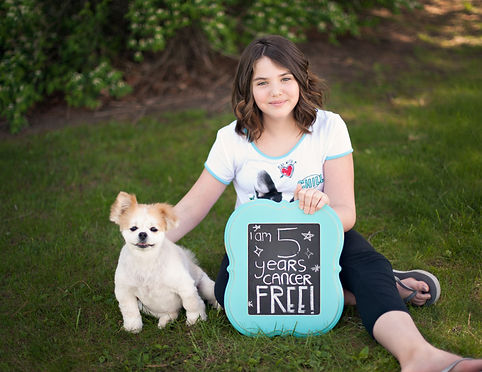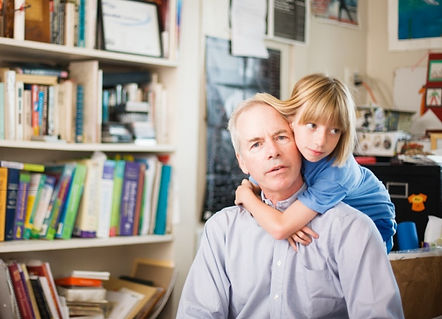
Pharmacogenomics: Using DNA to Save Lives
Personal Stories
Korei Parker
A seven year old who has "severe acquired aplastic anemia which causes uncontrolled bleeding bruising and infections"(2). By using pharmocenomics, the doctors used her genes to make sure she could not die due to drug overdose and gave her a different medicine that was able to help her treat this condition without causing any severe medical problems (2).

Bill (William Elder Jr.)
"William Elder, Jr. was diagnosed with cystic fibrosis (CF) at the age of eight" (5). "Now at 27, Bill is alive thanks to Kalydeco, a treatment of a particular form for his cystic fibrosis and a remarkable drug that treats the underlying cause of his CF, rather than the symptoms" (5)."For the first time in my life, I truly believe that I will live long enough to be a grandfather" (5).
Emily Whitehead
"At age six, Emily Whitehead was the first pediatric patient to be treated with a new kind of cancer immunotherapy and was cancer free only 28 days later" (5). 'If you didn’t know what happened to her, and you saw her now, you would have no idea what she has been through,' says Emily's Mom"(5).
"Emily’s T-cells were collected from her blood and re-engineered in the lab to recognize a protein found only on the surface of leukemia cells" (5). Those T-cells were then infused back into Emily’s blood, where they circulated throughout her body on a mission to seek and destroy her leukemia" (5).

Melanie Nix
"Melanie Nix had the gene mutation linked to breast cancer" (5). "After 16 rounds of chemotherapy and breast reconstruction surgery, she had to have both ovaries removed to further reduce risks of cancer in the future" (5). "But Melanie is now cancer free thanks to precision medicine" (5).
"Her best chance for cancer-free survival was to have a bilateral mastectomy" (5). "Melanie says that this type of tailored treatment gave her hope" (5). "Precision medicine offers the hope that by the time my daughter is at an age when she considers genetic testing, new, targeted treatments will be available to give her additional choices for preserving her health,' she said" (5).
Hugh and Beatrice Rienhoff
"Beatrice's original medical team had thought her condition resembled Marfan syndrome, a genetic disorder that can cause tears in the human heart" (5). "It's typically a fatal syndrome" (5). "However, the doctors couldn't fully diagnose Beatrice with Marfan — or any other known disease" (5). "Acting as 'Super Dad,' Hugh lead his team to identifying a variant responsible for his daughter's condition and this research gave rise to the description of a whole new syndrome" (5). "The team continues to use precision medicine to learn more about the new syndrome and further study genetic variation to help those like his daughter" (5). "Today, Beatrice is living a full life" (5).

Kareem Abdul-Jabbar
"Six-time NBA Most Valuable Player, Kareem Abdul-Jabbar was diagnosed with a form of leukemia in 2008" (5). "Known to be lethal, leukemia is a cancer of the blood and bone marrow" (5). "It caused the basketball great to slow down, fall ill, and worry" (5). "A few years later, he credits precision medicine for helping him to be well today" (5).
Tania Swain
"Tania Swain got bad news: her ovarian cancer had come back" (11). "And despite the surgery that removed 30 pounds of liquid and tissue from her ovaries, spleen, and appendix, and the chemo drugs that were swished around the space they left, the cancer was back" (11). "She feared that this time the diagnosis was truly the 'kiss of death' " (11). "But this time, Swain learned about the Clearity Foundation, a nonprofit organization that compiles its own database of mutations that cause ovarian cancer and help patients find the best individualized treatment" (11). "After another surgery in December 2013, her doctors sent a tissue sample to Clearity" (11). “They look at the proteins and receptors, and the different ways that the tumor tissue itself has mutated to find how they can best attack it,' Swain says" (11). "Her tumor had an unusually high concentration of a protein called Ki-67, which was good news—her cancer would be more responsive to typical chemotherapy agents" (11). "The treatment worked well—Swain felt less ill after the chemo than she had the last time" (11).

Sarah Ellis
"Sarah Ellis will never forget her darkest days battling depression..." (12). “I tried every medicine,' Ellis, 45, said" (12). "I wondered if I would ever find something that works" (12)."Ellis tried 23 different combinations of depression medications" (12). "Finally, her psychiatrist, suspicious that her body might process medication differently than most, recommended a genetic test to see why Ellis wasn’t responding to the prescriptions" (12).“Once the genetic testing became available it provided Sarah with more than just physical relief,' says Dr. Matthew B. Stanley of the Avera Medical Group in Sioux Falls, South Dakota" (12). "It gave us an answer — that this was her physiology and her genetics and not something in her head" (12). "The Genefolio test confirmed gene variants within Ellis’ DNA that made her more susceptible to certain side effects with newer classes of medications, so Stanley prescribed an older class of antidepressant and experimented with a lower dose" (12)."I feel like I can accomplish what I want to accomplish" (12). "This was definitely worth it” (12).